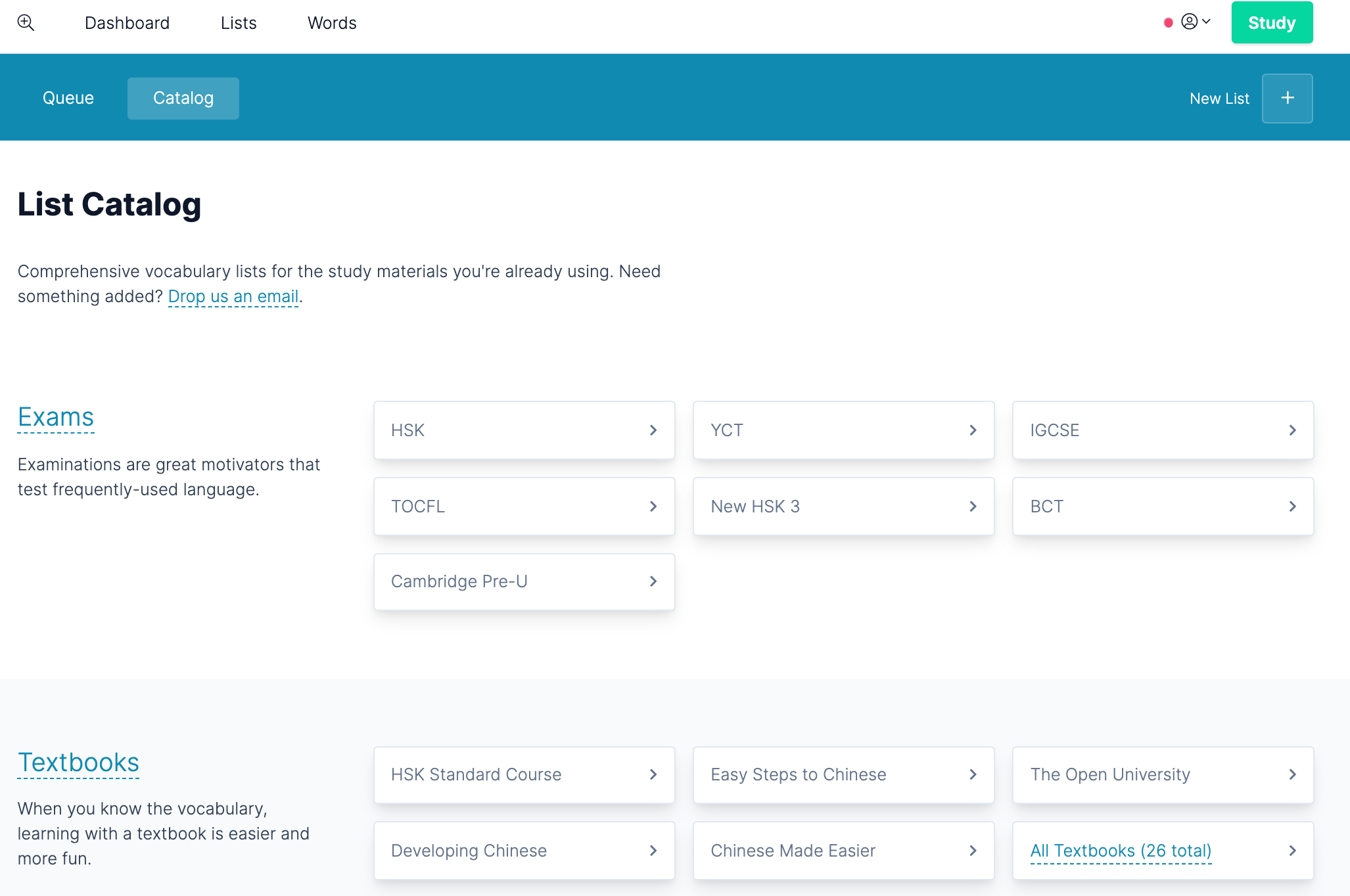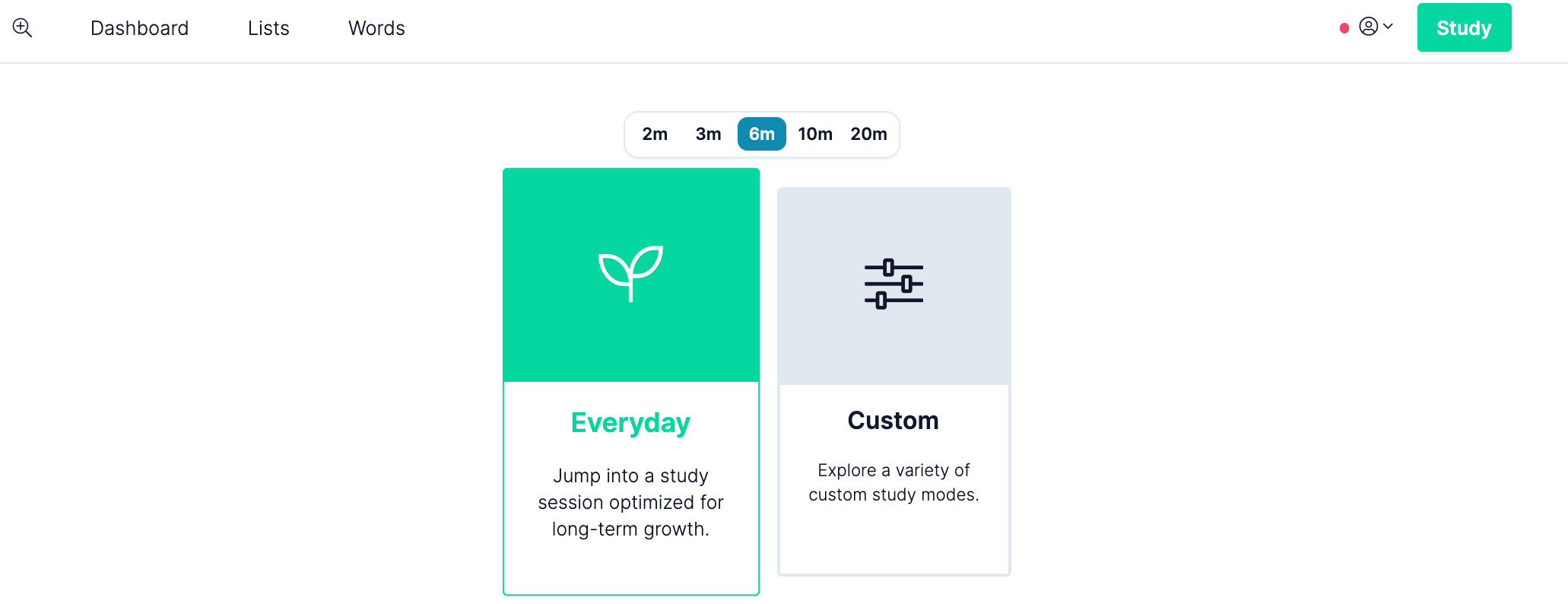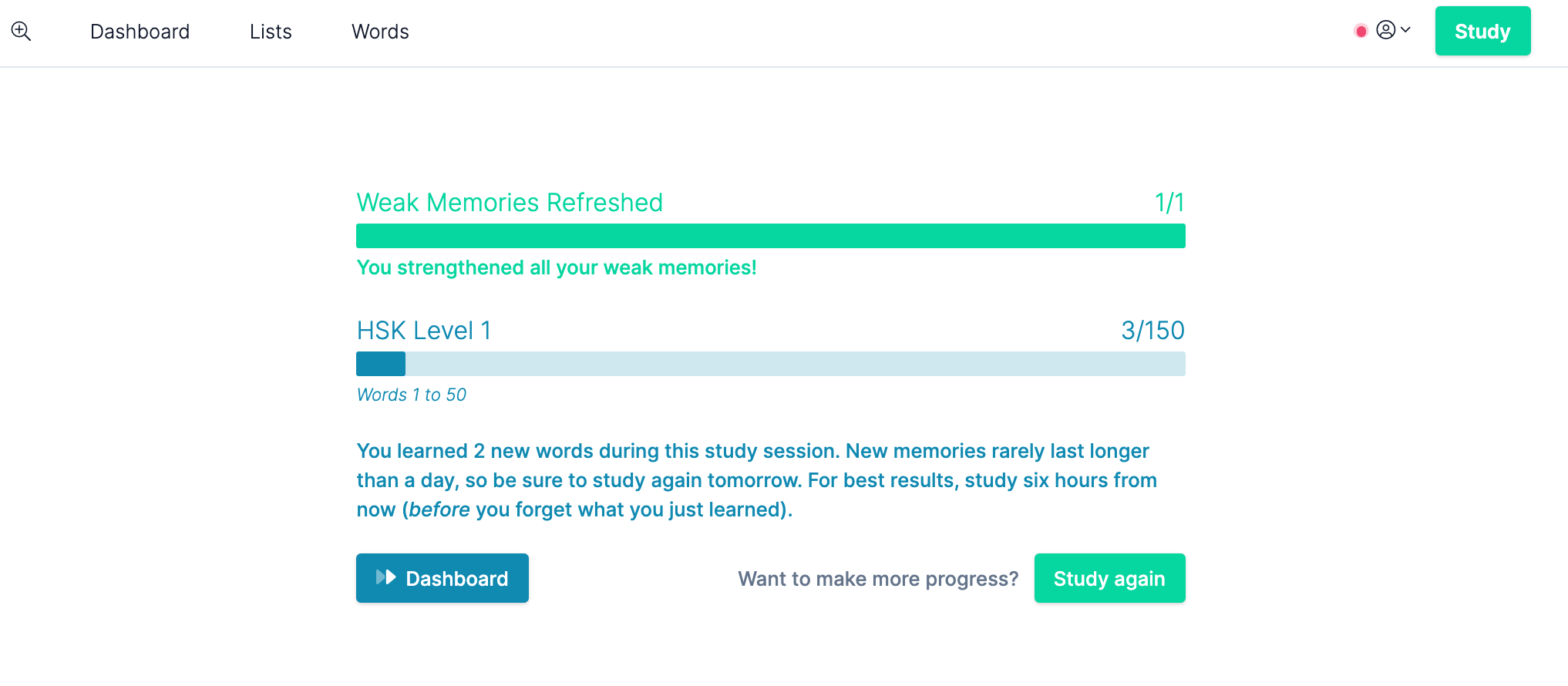
When it comes to memorization techniques, flashcards have stood the test of time. Though flashcards can be adapted for all kinds of subjects—from learning the countries of the world to MCAT prep—it is with language learning that flashcards can truly shine. If you’re learning Chinese, you might even have a stack of Chinese flashcards waiting for you to review right now.
Technological advancements have supercharged the way we use flashcards. For one, they’re not just made of paper anymore. But perhaps more importantly, software developed specifically for flashcard use has made flashcards optimized for memory retention in ways that were not feasible with paper flashcards.
Since flashcards remain a staple in the study plans of many students who learn Chinese, it’s worth taking some time to go over how to best use them. Read on for some of our tips on how Mandarin learners can make the most of their flashcards and enhance how they learn Chinese vocabulary.
Top Tips for Chinese Flashcards Practice
1. Find a Flashcard App Dedicated to Chinese Language Learning
There are a lot of different flashcard apps nowadays. When it comes to learning Mandarin, you can do better than generic flashcard software.
In order to get started with flashcard apps designed for general use, Mandarin learners will have to fiddle with settings and preferences to make them compatible with and effective for studying Mandarin. Learners will also have to input all of their own Chinese vocabulary cards one by one, which takes a good chunk of time to do.
An app like Hack Chinese, which was designed specifically for learning Chinese, takes care of the entire flashcard interface for Mandarin learners. Hack Chinese includes a built-in dictionary as well as vocabulary lists that learners can use to conveniently grab all the Chinese flashcard content they need.
Over time, these features save Mandarin learners a lot of time and energy.
2. Power up your Chinese Flashcards with Spaced Repetition
When studying Chinese flashcards, make sure you take advantage of spaced repetition algorithms. Spaced repetition ensures that you maximize the benefits you receive from the time and energy you spend on your studies.
With spaced repetition, you know that every card you flip is being shown to you at just the right time. If you’d like to learn more about spaced repetition, you can read about the theory behind the idea here.
Hack Chinese is designed with spaced repetition in mind. Learning Mandarin means memorizing many different characters and words along with their meanings and pronunciations. To streamline the process, Hack Chinese’s spaced repetition system manages your learning material so you can work through an efficient flashcard schedule.
You don’t even have to think about it—Hack Chinese takes care of all the scheduling for you and makes sure you only review flashcards when you really need to.
3. Preview New Learning Material
Effective use of Chinese vocabulary flashcards means integrating them into your larger study plan. One way of doing this is by using flashcards to prime yourself for new learning material. If you know that you will be encountering certain words in the future, add them to your practice lists in advance.
For example, you know that next week you’ll be starting a new chapter in your textbook. To prepare, add the vocabulary words from the next chapter to your study list for the current week. Then preview these new words before opening your textbook.
Though your understanding of the words will at first be mostly superficial, once you encounter the words in context next week, you’ll already have their definitions in your head. Now, instead of having to spend time looking up their definitions, you can concentrate on other activities like listening and speaking, allowing you to make the most of your time.
4. Set a Sustainable Pace for your Chinese Flashcards Practice
While Chinese flashcards can help any Mandarin learner bolster their vocabulary and improve their memory retention, finding the appropriate amount of time to spend studying Chinese to English flashcards can be tricky. As such, you should be mindful of how you plan your study schedule.
With Mandarin flashcards, consistency is key. Ideally, flashcards should be a part of your daily routine. If this sounds daunting at first, you should know you really have nothing to worry about. Your practice sessions will be effective if they are short, so you can ease into incorporating flashcards into your everyday life.
At Hack Chinese, we recommend limiting your daily study sessions to 20 minutes per day at most, but this is something you can work up to. For an easier approach, try starting with a five-minute session each day. Once you can complete these sessions with consistency, then in a couple of weeks, you can move your study sessions up to 10 to 15 minutes per day.
The goal here is to avoid frustration and burnout. As you study, you’ll have good motivation days, but also bad ones. Often when people start to study Chinese or start using a new app, they feel excited and enthusiastic. They’re able to complete one-hour sessions without breaking a sweat.
However, over time, that excitement and enthusiasm wear off. Eventually, one hour feels like an awfully long time to spend on Chinese flashcards.
This leads to the most common reason why people stop using their flashcards: they’re unable to keep up with the initial pace they set, causing their reviews to pile up and become overwhelming. Avoid this problem by taking your time and pacing yourself.
5. Keep Yourself Motivated
Feel the joy
In addition to keeping yourself from burning out, you need to keep yourself motivated. If you’re not careful, flashcards can come to feel monotonous, so you should actively find ways to keep yourself interested.
Luckily, there’s already a motivational factor built right into flashcards: that little spark of joy you feel when you correctly recall a card. Make sure you allow yourself to feel this happiness, not only because it makes you feel good, but also because it will keep you feeling satisfied with your studies and motivated to continue.
Take it slow
This is an additional reason why it’s important to find a sustainable pace for your Chinese flashcard studies and not bite off more than you can chew. If you move too fast with your studies and take on too much unfamiliar material, you can end up with an overwhelming pile of forgotten or unlearned cards, as we mentioned above.
Trying to get through these cards won’t give you that satisfying, motivating feeling, and this is definitely what you don’t want to happen if you’re trying to sustain your studies long-term. A healthy pace ensures solid memorization and retention as well as motivation and enthusiasm that you can sustain over the long run.
Celebrate the milestones
Now here’s one more way to motivate yourself. Consider that every single one of the cards you review becomes a part of your learning history. When you keep track of this data, you can analyze and visualize your progress and accomplishments over time. This is a great way to keep yourself motivated, and Hack Chinese makes this easy for you to do.
Hack Chinese includes an in-depth learning analytics dashboard that tracks your performance and your completion of learning objectives, so you can see that every small step really does add up over time! Keeping track of where you’ve been with Chinese flashcards can show you that your hard work has actually gone towards accomplishments that you can see and measure.
Conclusion
Though technological advancements have changed the way we think about and use flashcards, they remain a great way to study Chinese vocabulary. Hopefully, the tips in this article will help you take advantage of all their benefits.
If you’re looking for more tips to enhance your study of Chinese flashcards, look no further than our Study Guide!


